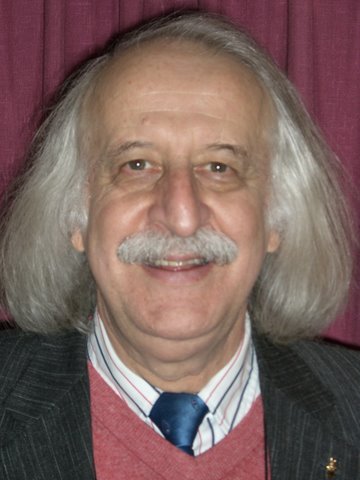A formal framework for processes inspired by the functioning of living cells: Natural Computing approach
Lecturer:
Professor Grzegorz Rozenberg
(Leiden University, The Netherlands and University of Colorado at Boulder, USA).
About the lecturer | Course Summary | Course Structure | Overview Lecture | Assignment
 About the lecturer:
G.Rozenberg is a Professor of Computer Science at Leiden University,
The Netherlands, and an Adjunct Professor at the Department of Computer
Science of University of Colorado at Boulder, U.S.A. He is the head of
the Theoretical Computer Science group at Leiden Institute of Advanced
Computer Science (LIACS), and the scientific director of Leiden Center
for Natural Computing (LCNC). He has published more than 500 papers,
6 books, and is a (co-)editor of
about 90 books.
His current research interests are:
About the lecturer:
G.Rozenberg is a Professor of Computer Science at Leiden University,
The Netherlands, and an Adjunct Professor at the Department of Computer
Science of University of Colorado at Boulder, U.S.A. He is the head of
the Theoretical Computer Science group at Leiden Institute of Advanced
Computer Science (LIACS), and the scientific director of Leiden Center
for Natural Computing (LCNC). He has published more than 500 papers,
6 books, and is a (co-)editor of
about 90 books.
His current research interests are:
- natural computing, including molecular computing, computation in living cells, self-assembly, and theory of biochemical reactions, theory of concurrent systems, in particular theory of Petri nets, theory of transition systems, and theory of traces,
- theory of graph transformations,
- formal language and automata theory.
Course summary: Natural Computing is an interdisciplinary research field that investigates human-designed computing inspired by nature as well as computation taking place in nature, i.e., it investigates models, computational techniques, and computational technologies inspired by nature as well as it investigates phenomena/processes taking place in nature in terms of information processing.
One of research areas from the second strand of research is a computational understanding of the functioning of the living cell. We view this functioning in terms of formal processes resulting from interactions between (a huge number of) individual reactions. These interactions are driven by two mechanisms, facilitation and inhibition: reactions may (through their products) facilitate or inhibit each other. In this course we present a formal framework for the investigation of processes carried by biochemical reactions in living cells. We motivate this framework by explicitly stating a number of assumptions that hold for these processes, and we point out that these assumptions are very different from the ones underlying traditional models of computation. We discuss some basic properties of these processes, and demonstrate how to capture and analyse, in our formal framework, some notions related to cell biology and biochemistry. Research topics in this framework are motivated by biological motivations and the need to understand the underlying computations. The models we discuss turned out to be novel and attractive from the theory of computation point of view.
The course is of a tutorial style and self-contained, in particular no prior knowledge of biochemistry or cell biology is required. It is suited for master and PhD students as well as for researchers and faculty members. It is of interest to computer scientists and mathematicians interested in formal models of computation as well as to bioinformaticians, biochemists, and biologists interested in foundational/formal understanding of biological processes.
Course structure: The course will be given in three one-day blocks, covering:
BLOCK 1- Natural Computing.
- Reactions and Reaction Systems.
- Interactive Processes.
- Genetic Regulatory Systems.
- Computer Science Examples: Finite Transition Systems and Switching Circuits.
- Functions Computed/Implemented by Reaction Systems.
- Biological Modularity.
- Broader Framework.
- Quantitative Aspects: Measurement functions.
- Modeling Decay.
- Causalities.
Overview lecture: On Nov. 27, Prof. Rozenberg will give an overview lecture that will present the general area related to the course. The lecture will be organized at IPI PAN:
Tuesday, Nov. 27, 14:30
IPI PAN, large lecture hall (ground floor)
ul. Jana Kazimierza 5
01-248 Warszawa
The course covers and extends in a systematic way and in great detail the material presented in the overview lecture. Although the overview lecture is obviously useful for the participants of the course, one does not have to attend it in order to attend the course - the course itself is self-contained.
Assignment
Please send the solution (pdf) to Bartek Klin
(klin AT[you-know-what]) by
4 January, 2013.

